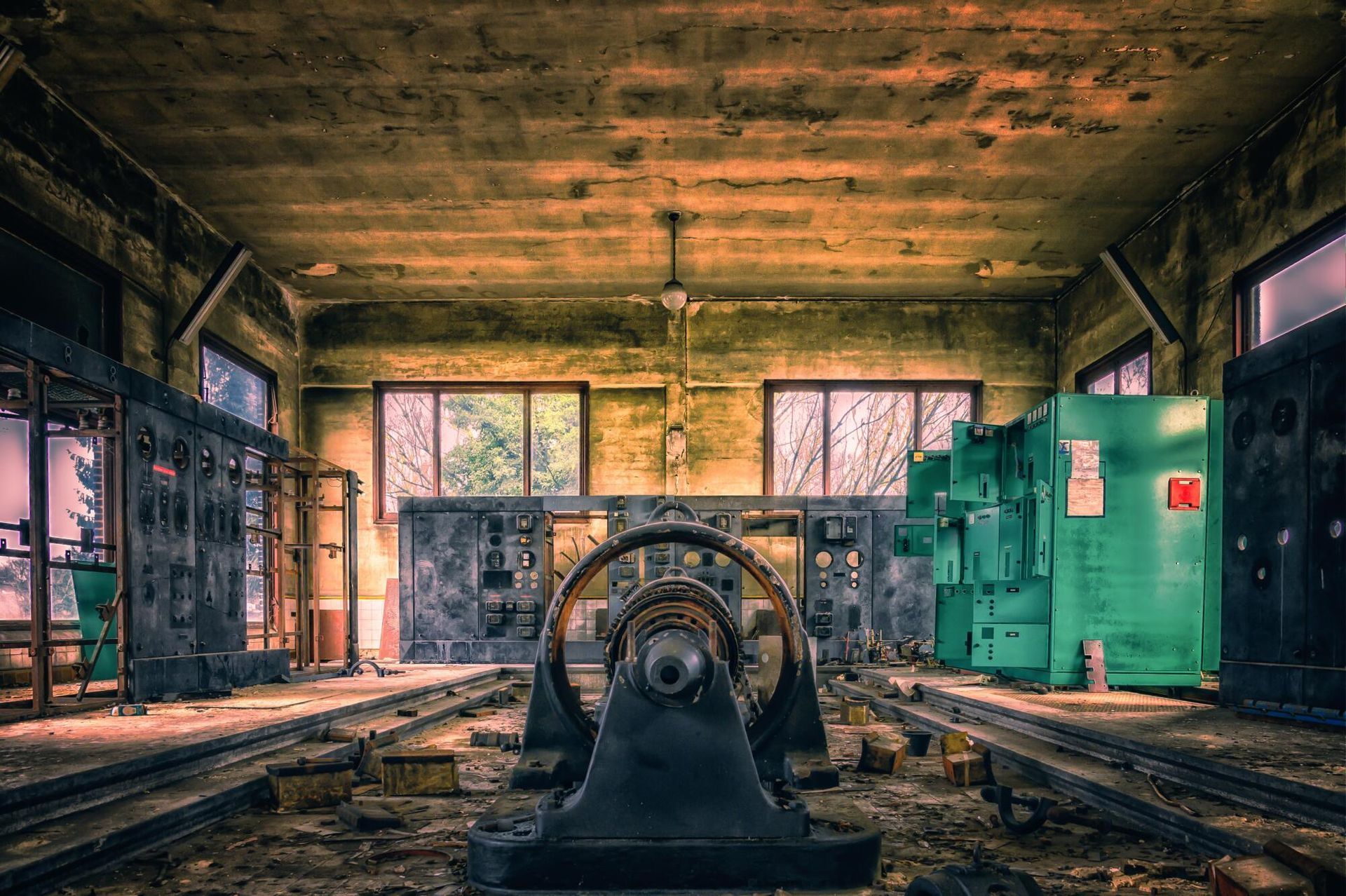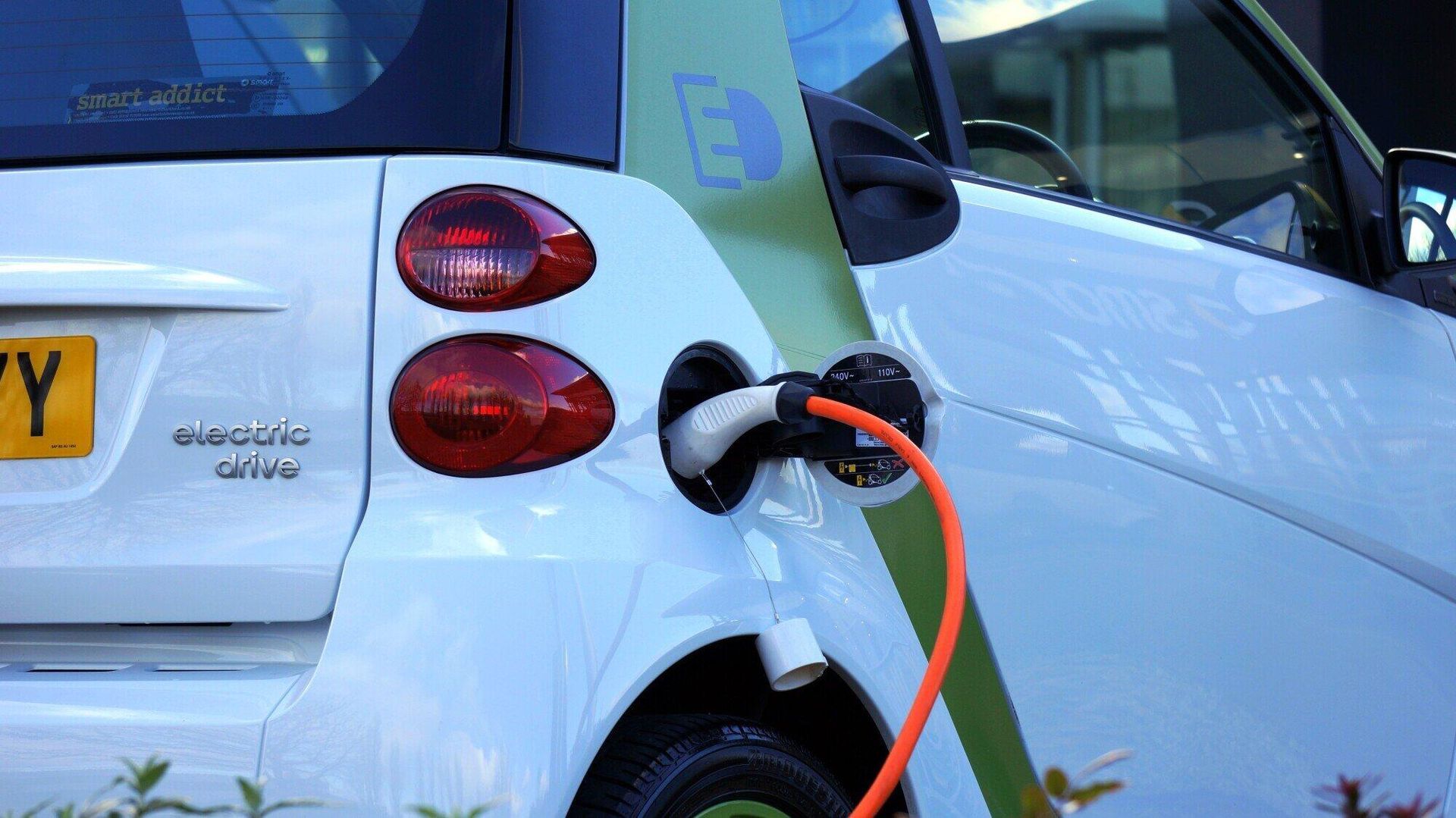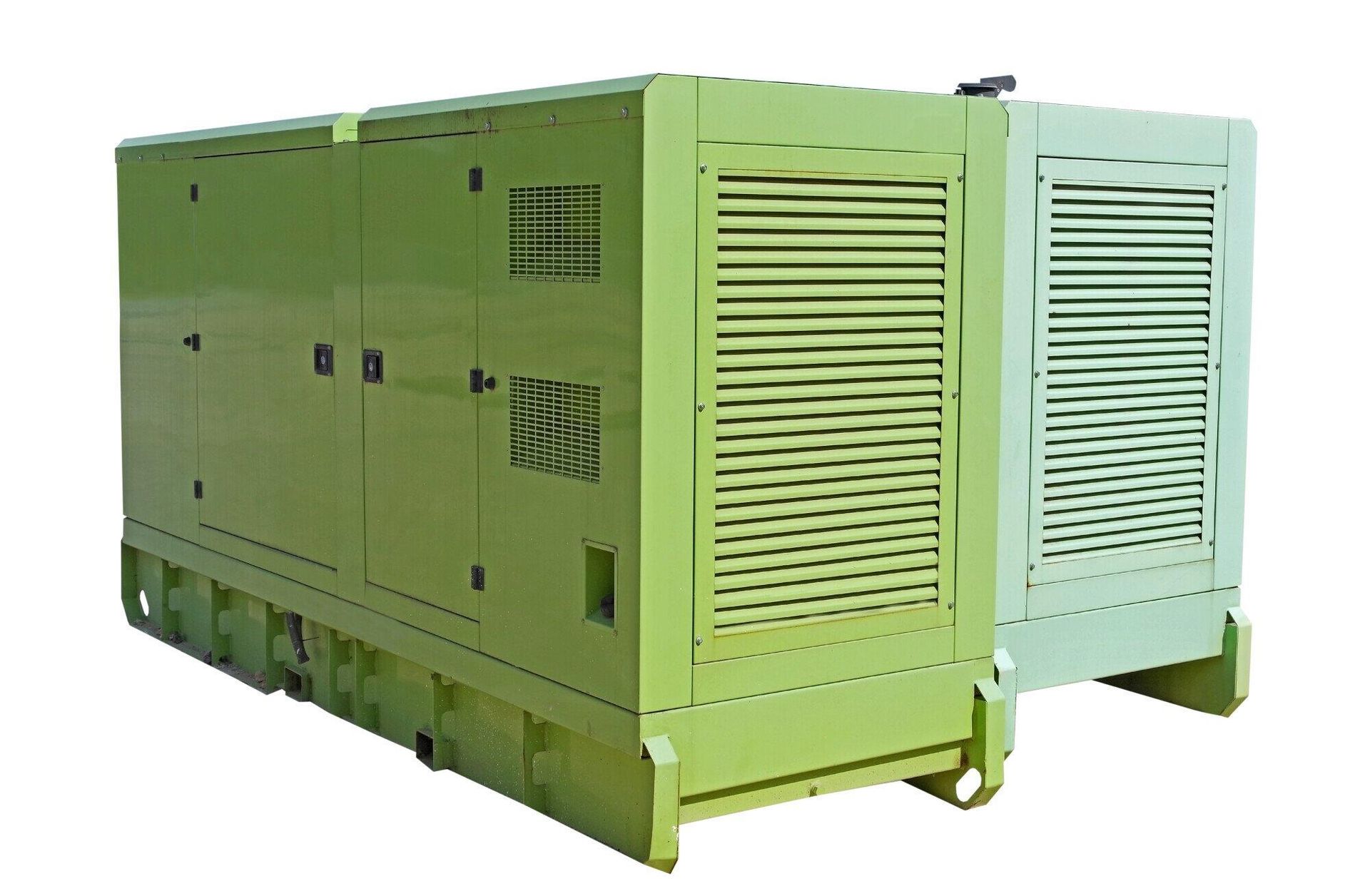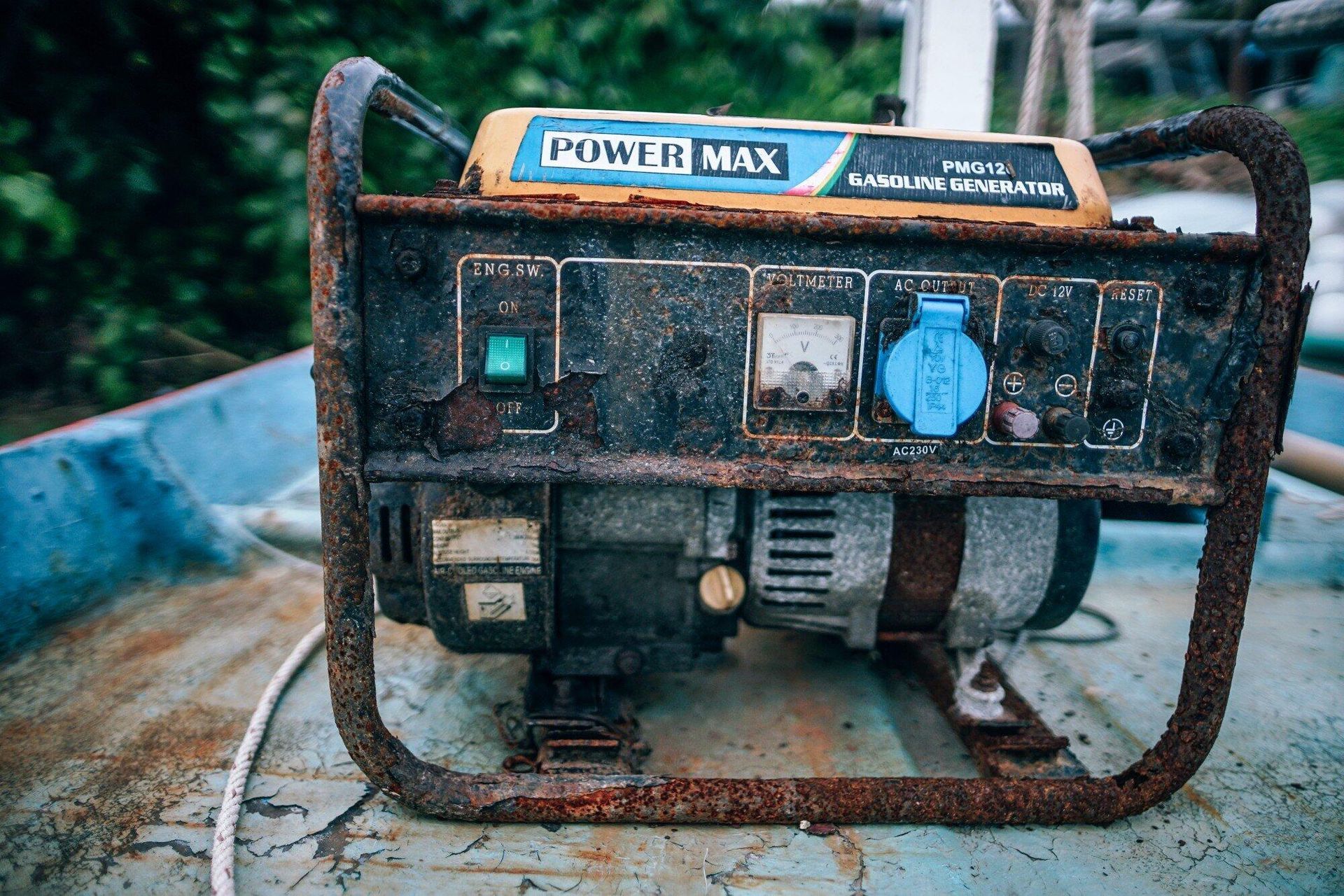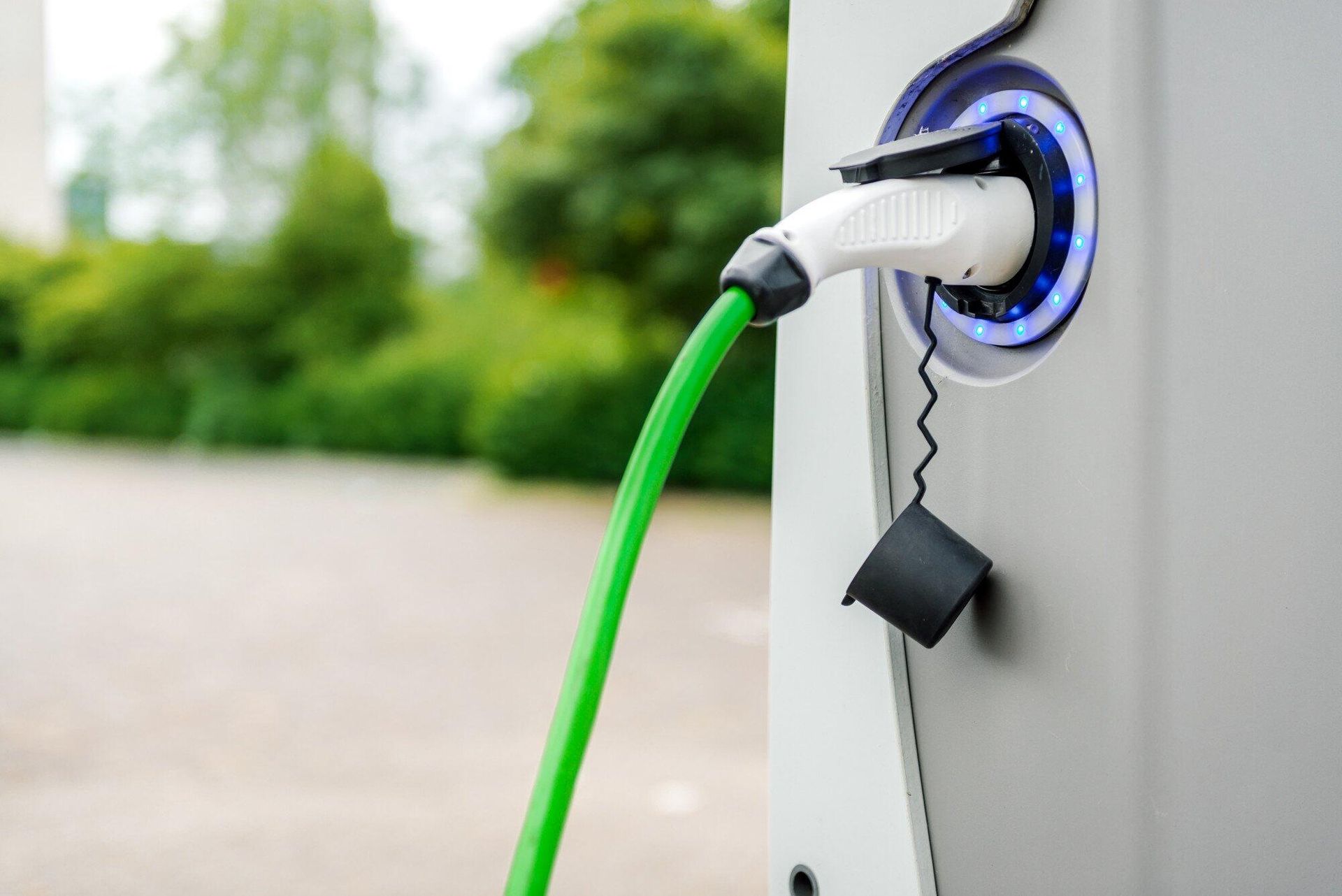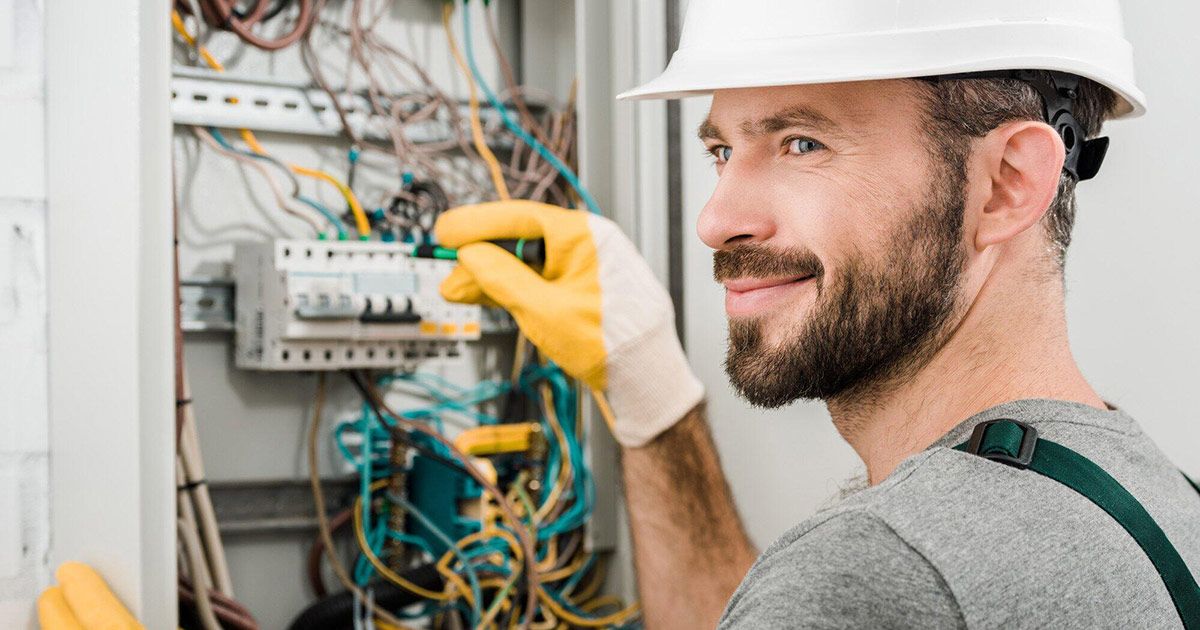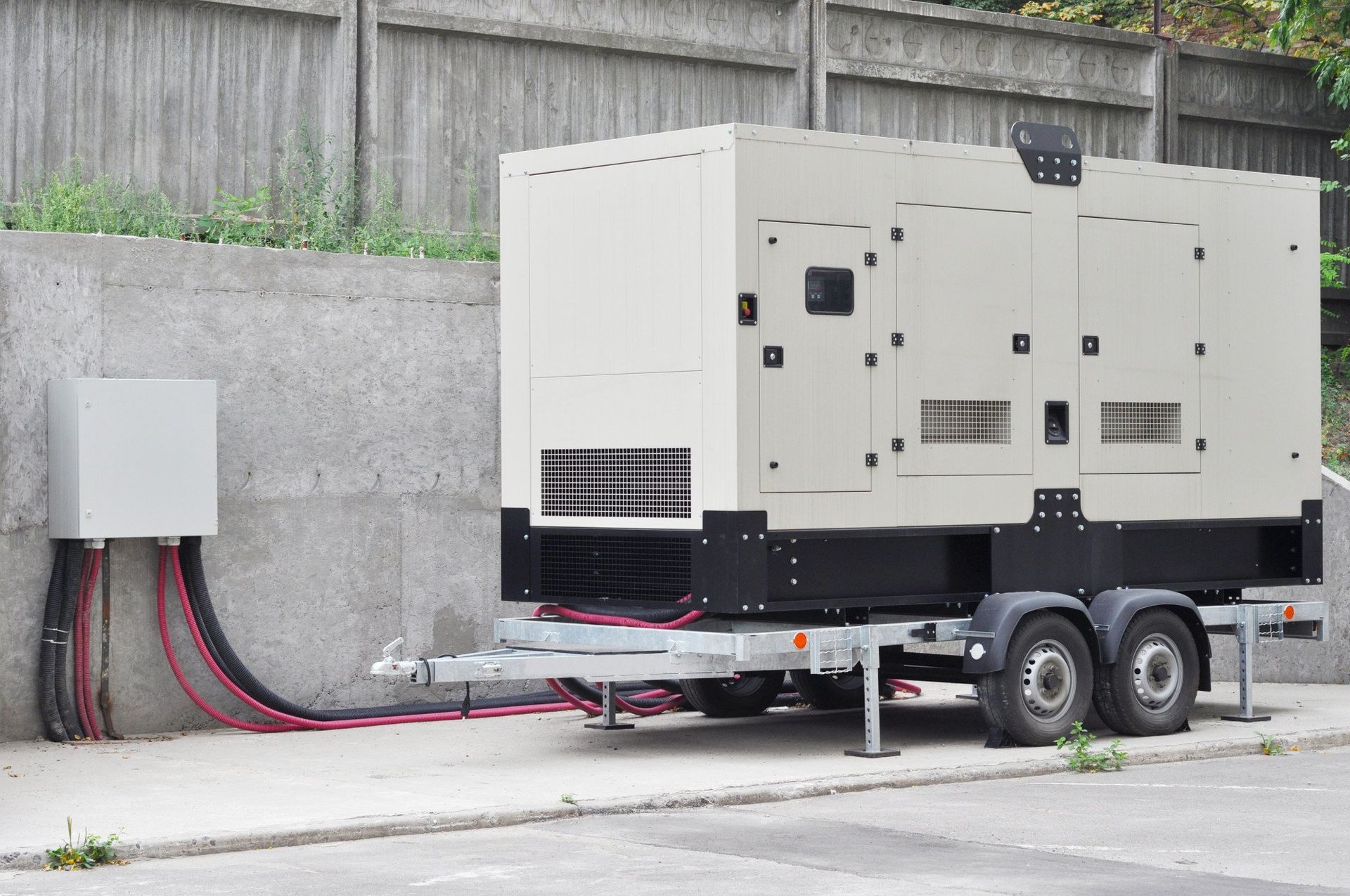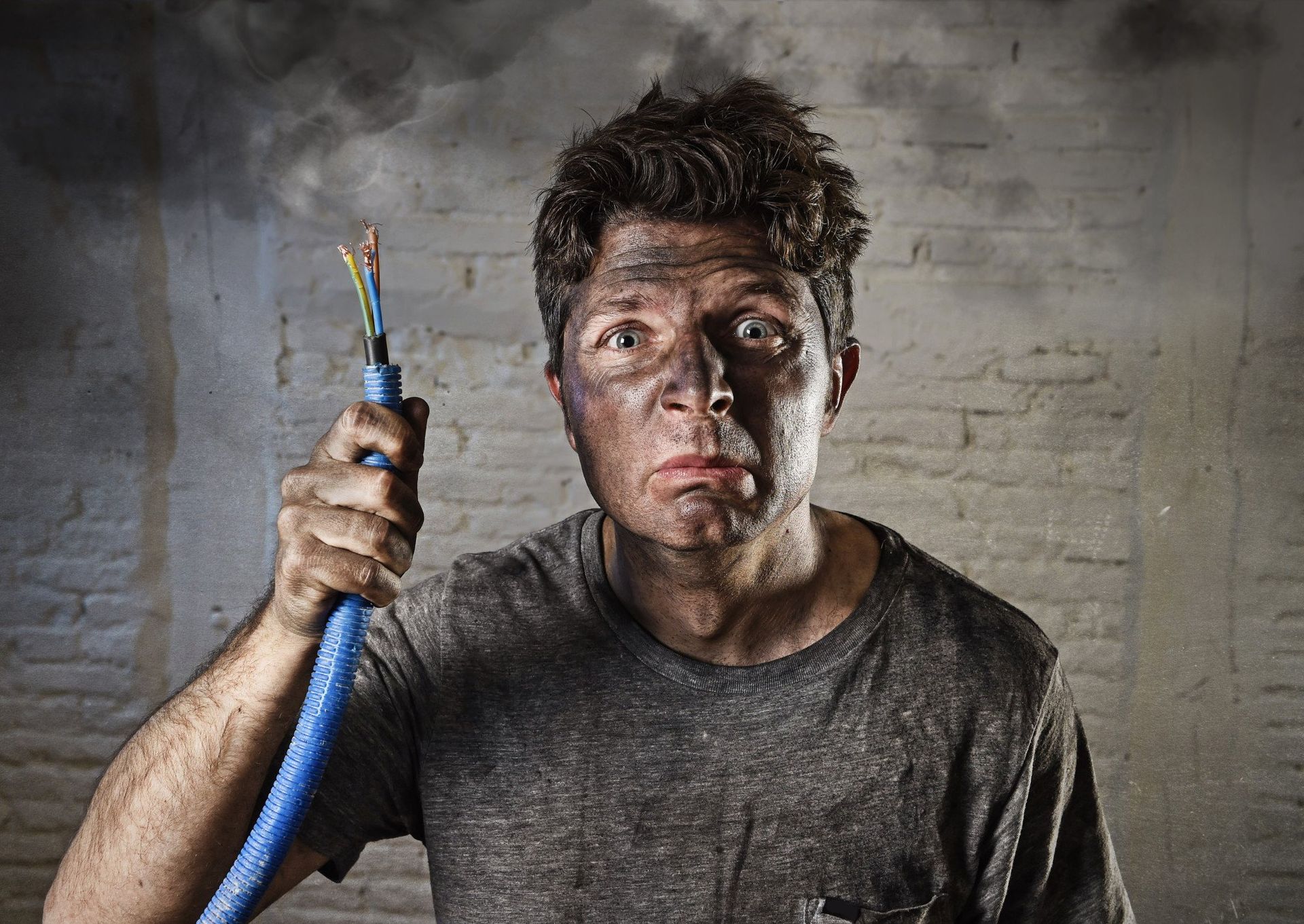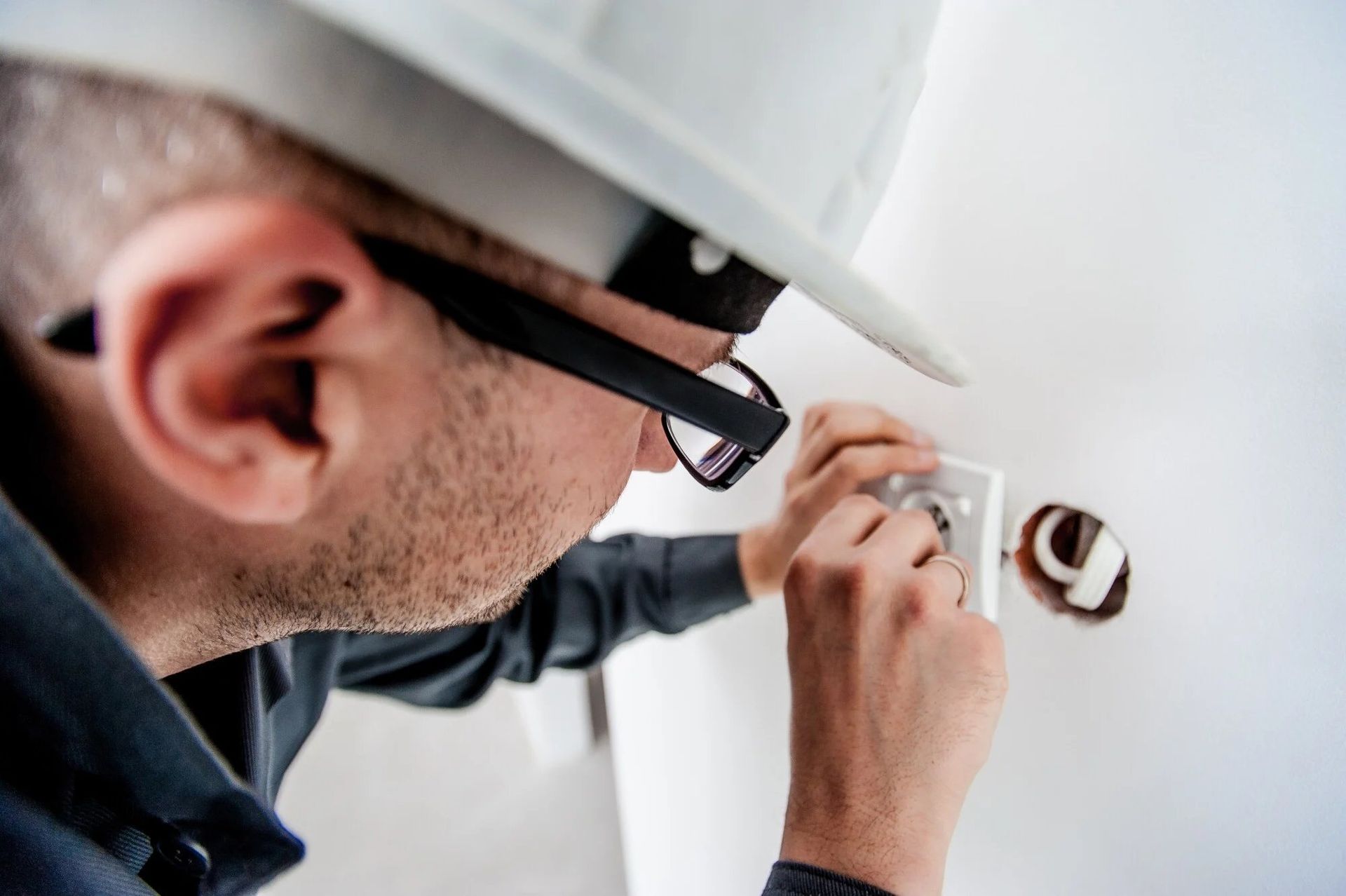Virginia
NE North Carolina and SE Virginia
We are licensed and serve both the North East region of North Carolina and South East region of Virginia
Call Us for a Free Estimate Today!
Northern Virginia
NE North Carolina and SE Virginia
Upgrading Your Home's Electrical System: When and Why It's Necessary
You're hosting a cozy movie night at home. The popcorn is popping, the drinks are chilled, and the room is perfectly lit with a string of fairy lights. But as soon as you plug in your new soundbar, the power trips, plunging everything into darkness. You fumble for your phone flashlight, wondering, "Why does this keep happening?"
If this scene feels all too familiar, it might be time to consider upgrading your home's electrical system. Outdated wiring, overloaded circuits, or an aging breaker box can struggle to keep up with modern demands.
Luckily, we can help. Let's go through what you need to know about upgrading your home electrical system.
Outdated Wiring
One of the clearest signs of electrical issues is outdated wiring. Buildings put together before the 1970s often used knob-and-tube or aluminum wiring, which can no longer handle the demands of modern appliances and electronics. Knob-and-tube wiring lacks a grounding wire, increasing the risk of electrical shocks and fires. Aluminum wiring, while slightly newer, tends to overheat more easily than copper and can loosen over time, creating dangerous electrical hazards.
Modern appliances and smart home devices require higher levels of power and reliability than older systems can provide. If your home still has these older wiring systems, upgrading to copper wiring and ensuring proper grounding can dramatically improve safety and efficiency.
If you're worried, bring in electrical installation experts ASAP.
Frequent Circuit Breaker
If you're constantly having circuit breaker issues, you'll want to bring in experts because that's one of the most common signs of a problem. Breakers are designed to cut power when they detect an overload, short circuit, or other issue to prevent damage to your electrical system and reduce the risk of fire. If your breakers trip regularly, it could indicate that your system is struggling to meet the demands of modern technology.
In some cases, frequent trips may point to specific problems, such as outdated wiring, insufficient panel capacity, or faulty circuits. Older electrical panels, particularly those with less than 200 amps of capacity, often cannot handle the load of today's homes, which are equipped with energy-hungry appliances like:
- Air conditioners
- Refrigerators
- Entertainment systems
Repeated breaker trips may suggest deteriorating or improperly installed wiring, which could lead to dangerous overheating. If you struggle with these issues, look for repair experts in your area.
Flickering or Dimming Lights
While occasional flickering can sometimes be caused by a loose bulb or minor issues, persistent or widespread occurrences often point to deeper electrical problems. These issues typically occur when high-energy appliances, like air conditioners or refrigerators, draw more power than the system can provide, leaving insufficient electricity for other devices and causing lights to dim or flicker.
In older homes, outdated wiring or undersized electrical panels may not be able to handle the demands of modern households filled with energy-intensive devices. Loose or damaged connections within circuits can also lead to inconsistent power flow, further exacerbating flickering lights.
Ignoring these symptoms can lead to overheating wires. These wires increase the risk of electrical fires or damage to your appliances.
Upgrading your home's electrical system to a higher-capacity panel and modern wiring can resolve these issues and ensure a steady flow of power throughout your home. This upgrade not only enhances safety but also prevents disruptions, allowing you to use your appliances and electronics without worry.
Lack of Grounded Outlets
Grounded outlets, recognizable by their three-prong design, provide a critical safety feature by directing excess electricity safely into the ground during power surges or electrical faults. This protects your appliances, electronics, and, most importantly, your household from potential electrical shocks or fires.
Ungrounded outlets were standard in homes built before the 1960s. But, they are no longer sufficient to handle the demands of modern appliances and devices. Ungrounded outlets can make it difficult to use newer appliances, which often require three-prong plugs for compatibility and safety. Without grounding, sensitive electronics are more vulnerable to power surges, which can cause damage or data loss that you can't easily repair. Some examples of these are:
- Computers
- Televisions
- Smart home equipment
Electrical Safety Tips: Improved Energy Efficiency
Upgrading your home's electrical system can significantly enhance energy efficiency, saving you money on utility bills and reducing your environmental footprint. Older electrical systems are often less efficient because they were not designed to support the energy demands of today's advanced technologies. Bad wiring, panels, and fixtures can waste electricity, increase heat loss, and struggle to power modern energy-efficient appliances effectively.
Modern electrical systems are built with efficiency in mind. Upgrading your wiring to materials like copper, which conducts electricity more effectively than older alternatives, reduces energy loss during transmission. Similarly, installing a high-capacity electrical panel ensures your system operates at optimal efficiency, preventing the overloads and energy surges that often result from overburdened older systems. You can also optimize energy use by tailoring power consumption to your needs by adding smart technology, such as:
- Programmable thermostats
- Energy-efficient lighting
- Automated home systems
Insurance and Resale Value
Insurance companies often assess the safety and reliability of a home's electrical system when determining coverage eligibility and premiums. Older systems are considered high-risk and may lead to higher premiums or even denial of coverage. By upgrading to a modern electrical system, you not only enhance safety but also improve your chances of securing affordable insurance rates.
From a resale perspective, updated home wiring is a strong selling point for potential buyers. Many buyers view a home's electrical infrastructure as a critical factor in their purchasing decision, as it directly affects:
- Safety
- Energy efficiency
- Modern appliances and smart home technology accommodation
Homes with electrical systems that comply with current building codes are often appraised at a higher value. A modern system ensures that the home is safe, efficient, and future-ready, which are key considerations for both buyers and lenders.
Home Electrical System: Decide Today
There's a lot that goes into whether or not you should upgrade your home electrical system. Now that you know some of the decision points, you can decide what's right for your needs.
Are you ready to invest in modern electrical systems in Eure, NC? VANCELECTRIC, LLC is here for you. We're a licensed & insured electrical contractor first established in 1998, so you know we have the skills you need.
Check us out today.
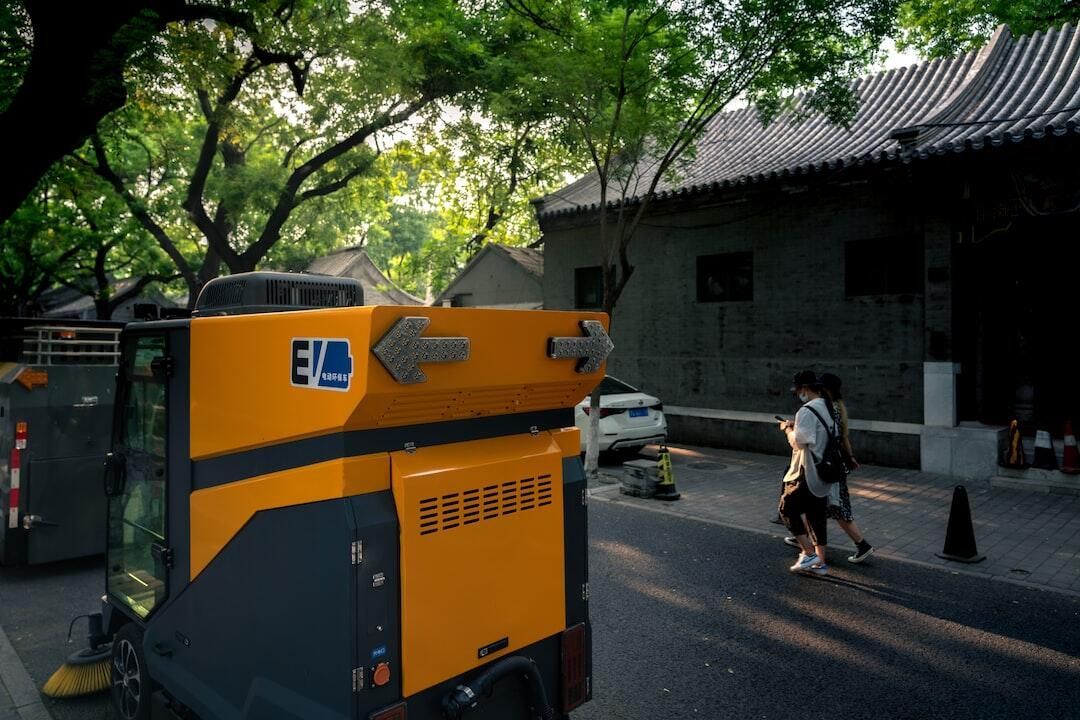
Our Services
Our Products
Locations
Website designed and maintained by Xpress, INC
All Rights Reserved | Vancelectric, LLC

